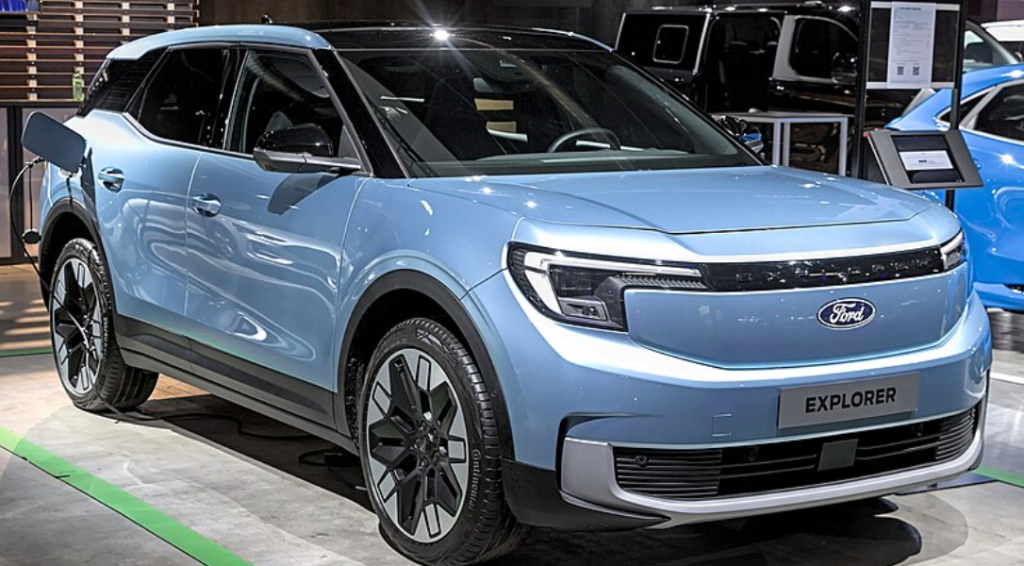Democrats are hell-bent on forcing every American to switch out their gasoline powered vehicle for an electric vehicle.
The only problem is the technology is still in its infancy, causing major issues and inconveniences for both auto-makers and consumers alike while also keeping prices far too high for most.
And now a top U.S. auto-maker is staggering after this latest electric vehicle catastrophe.
It’s not all sunshine and rainbows
Democrats’ environmental extremist crusade to force every American out of gasoline-powered vehicles and into electric vehicles (EVs) is proving to be a fool’s errand, just as those who opposed such anti-American mandates said it would be.
That’s largely because while gasoline powered vehicles have been manufactured on a mass scale for well over a century, allowing ample time for technological advancements, the formation of adequate supply chains, manufacturing upgrades, and lower costs, EVs have only been manufactured on a mass scale since the Nissan Leaf in 2010.
As such, the average price of an electric vehicle is roughly $7,000 higher than that of a comparable gasoline-powered vehicle.
Furthermore, considering the fact that EVs have only been manufactured for such a short period of time, there are also far less pre-owned EVs than pre-owned gasoline-powered vehicles available for purchase, causing Americans who typically buy used vehicles to have little choice but to purchase a gasoline-powered vehicle.
And none of that even begins to scratch the surface on the added costs once you actually own an EV.
For instance, the average EV battery lasts about 10-15 years, or roughly the same length of time the average internal combustion engine (ICE) lasts these days – although, Tesla batteries are now reportedly capable of lasting upwards of 30 years, if not more, depending on various factors.
But while the cost of replacing the average ICE is typically less than $10,000, the cost to replace the average EV battery is nearly $20,000, if not more.
Nevertheless, ensuring that an EV’s battery is working properly is a matter of safety, as the lithium-ion batteries used for EVs can produce significant fires.
As such, Ford Motor Company recently announced a recall on over 20,000 of its hybrid SUVs due to battery issues that could cause fires.
In total, the recall has been extended to over 16,000 Ford Escapes and over 4,000 Lincoln Corsair plug-in-hybrid SUVS that were manufactured between 2020 and 2024.
A matter of safety
As Ford outlined in its filing with the U.S. National Highway Traffic Safety Administration, the recall is largely due to a battery issue that could cause the vehicles to experience a “shutdown of the vehicle’s propulsion system” while operational – even though the vehicle will still have brakes, steering, and lights.
But it’s also an issue that could theoretically produce “a high voltage battery cell internal short circuit” that causes a fire and unnecessarily puts certain drivers in harm’s way.
“In the event of a high voltage battery cell internal short circuit, customers may experience shutdown of the vehicle’s propulsion system,” Ford’s filing stated. “Loss of motive power increases the risk of crash and injury. Steering, braking, and lighting functions are not affected. In the event of a high voltage battery cell internal short circuit, the customer may also experience battery thermal venting potentially resulting in a vehicle fire, increasing the risk of injury.”
The auto-maker proceeded to reveal that its vehicles have experienced just four such “battery thermal venting” issues, and no injuries were reported in those instances.
On top of rectifying the issue with a battery replacement for those vehicles still under warranty, Ford also announced that it will be installing a “Stop Now Safely” feature to warn drivers that an issue could be at-hand, giving them time to exit the vehicle safely before there’s an incident – a safety feature that Tesla installed on all of its vehicles over four years ago.
Ford has stated that impacted drivers whose vehicles are still under warranty will receive letters notifying them of the recall by January 20, and will be given the opportunity to have their EVs’ battery pack inspected and replaced free of charge.
Considering the fact that Ford has already had ample issues with its EVs, losing billions of dollars in the process, the reality of such another costly EV recall will be extremely costly to the company.
After all, Ford previously announced that it was scaling back its EV manufacturing efforts due to dwindling demand and various issues, such as costly recalls.
And it would seem this latest issue will only serve to further motivate the auto-maker to further scale back on EVs, delivering a major blow to Democrats’ environmental extremist agenda.
